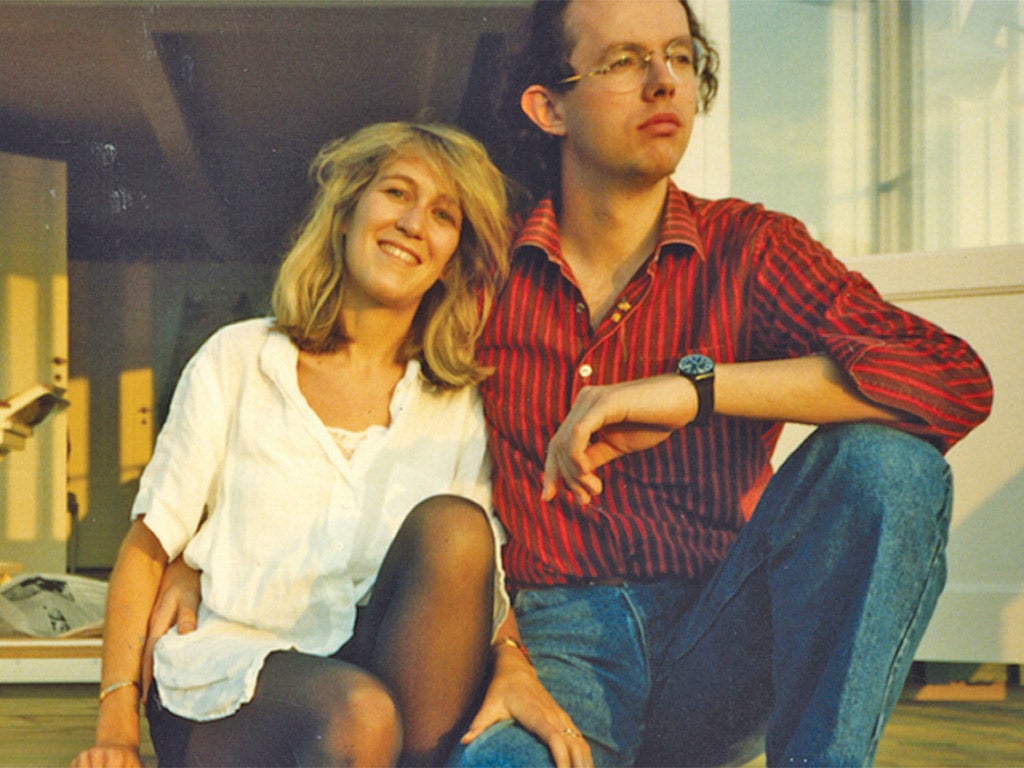'Eva looked so restful. Like a small child, I couldn't face telling anyone she'd died'
After weeks of speculation, the definitive story of Eva Rausing's tragic descent was revealed yesterday

It started with two forbidden glasses of champagne to usher in the new millennium. It led to drug-taking punctuated by regular visits to rehabilitation centres as their privileged lives began to unravel. It ended in the squalid private annexe of their six-storey Chelsea house where Eva Rausing's decomposing body lay undiscovered while her husband sought oblivion in the drugs that destroyed their lives.
After 11 years of abstinence and a comparatively happy family life with four children, the disastrous decision by the couple in December 1999 to fall off the wagon started a chain of destructive events that resulted in Hans Rausing's appearance yesterday in the dock and the chaos of their lives fully exposed.
The couple had met at a drying-out clinic while both were in their 20s and had struggled for years with addiction. They had appeared to have achieved some form of stability until their fateful decision on the millennium New Year's Eve to have a drink. Their decision to move away from a programme of total abstinence meant that they lost the support of Narcotics Anonymous and Alcoholics Anonymous. They proved unable to cope.
They were able to get by for a few years but events in 2007 led to a worsening in their addiction and turned Rausing into a virtual recluse whose only human contact was with his wife. "It was like the end of the world," said a member of their staff, the court heard.
It was a lifestyle they sought to hide. Visitors to their town house in Cadogan Place only ever saw the clean and smartly decorated rooms their huge inherited wealth could provide. What was never on view was the utter squalor of the rooms that provided the chaotic setting for the couple to live out their painful addiction. They were a far cry from their public image as philanthropists – with £2m annual donations from Rausing's foundation – attending glittering parties and fund-raising balls for the drug charities they supported. The rooms provided a better picture of the dramatic decline for one troubled heir of the Tetra Pak fortune.
Rausing's curse, according to his defence team, was his economic circumstances and upbringing that had given him unusually strong "social anxiety, feelings of inferiority" and a tendency to "medicate by drug taking".
He had been totally dependent on his wife, the daughter of a wealthy Pepsi executive, who was virtually his only human contact.
Just before her death, she had returned from a clinic in California to Britain because of concerns about his health and had wanted to take him back to America. He had not been able to go first time round because he could not find his passport.
She confided her worries about her husband's chaotic lifestyle during a meeting with an adviser, but within days she herself had died from heart failure coupled with the effect of drugs. A post-mortem examination revealed traces of cocaine and amphetamines and the pacemaker fitted inside her body suggested the date of her death was on 7 May. She will now be buried in the US.
Rausing, 49, told police that he suffered a breakdown and was unable to confront the reality of her death after 19 years of marriage. He used deodorising powder to try to mask the smell after leaving his wife's body under clothing and black plastic sacks.
"I know it sounds selfish but I just didn't want her to leave," he told a doctor, Mike McPhillips, who compiled a report on his state of mind.
Eva's death was only discovered after police arrested him when he was caught driving erratically under the influence of a cocktail of drugs including cocaine and morphine, Isleworth Crown Court in west London heard yesterday.
Police found drugs paraphernalia inside the car and a substantial amount of mail for Mrs Rausing, who had returned to London on 29 April.
Unsatisfied by his answers, police decided to search the house. By chance, Mrs Rausing's parents, Tom and Nancy Kemeny, arrived at around the same time.
Going up in a lift inside the house, police noticed the unmistakeable smell of decomposition. They discovered Mrs Rausing's body in the annexe used only by the couple that was behind a locked door and sealed with industrial tape to try to prevent any outsiders from coming in.
Rausing later told Dr McPhillips that he felt numb and has no recollection of what happened for 10 to 12 days after his wife's death. He said she was looking "quite restful" and he, "like a small child, could not face up to telling anyone else that she had died," said his defence counsel Alexander Cameron, QC.
He accepted he had acted in a "cowardly fashion" although his wife's family had been "forgiving and supportive". Both sets of parents had long been forced to address the couple's struggles. Mr Kemeny described Rausing as a "wonderful father, a wonderful man, a good person – but also very ill".
After an earlier court hearing, Rausing's parents issued a statement saying Eva's death is "a reminder of the distorted reality of drug addiction".
They added: "They desperately hope that their dear son, Hans, may find the strength to begin the long and hard journey of detoxification and rehabilitation."
Bookmark popover
Removed from bookmarks